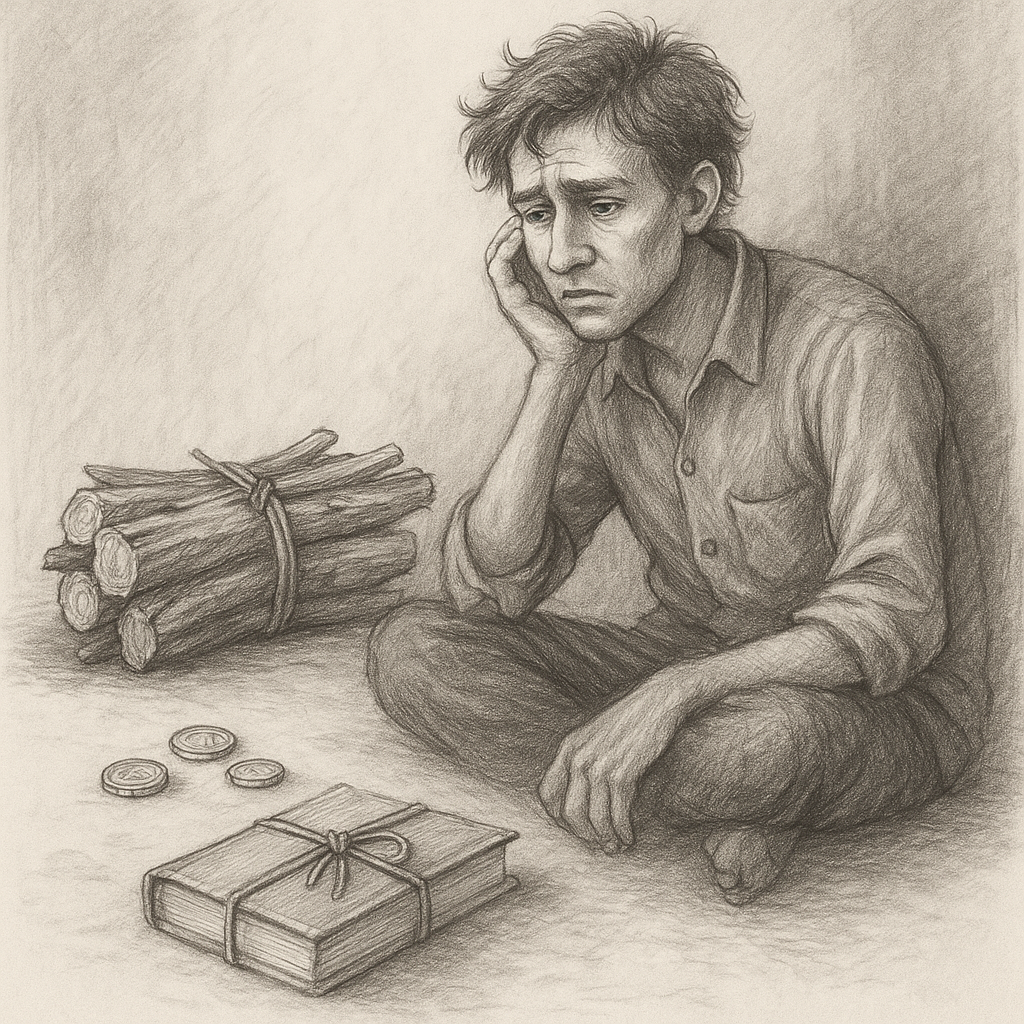The Price of Dignity
In the quiet hills of Shimla, where woodsmoke curled through the morning air, not every axe strike echoed greed—some were carved from need. This is the story of a young woodcutter, a man of hard work and quiet dignity, and the bitter price he paid for both.Navneet Bakshi Tweet
The Price of Dignity
A young man carries more than just firewood on his back—he carries the burden of education, dignity, and survival. A story from the hills of childhood, where every bargain has a soul behind it.
In my childhood, cooking in our kitchen was done over an angithee, a traditional brazier, fueled by timber gathered from the hills. Though kerosene stoves had entered the market, they were used sparingly, as kerosene was strictly rationed through PDS on Ration Cards. But an angithee wasn’t something a stove could replace.
In Shimla, where the air was cold and wood scarce, fires were a necessity, and yet, dry wood was never easy to come by. The jungles around town were untouched by land developers, who hadn’t yet arrived to reshape the landscape. Back then, few buildings went up, and oddly enough, some of the old ones regularly burned down—an "electrical short circuit," they said, though whether it was a tactic of land mafias remains uncertain.
On cold evenings, the sound of a distant axe—thwack, thwack—could be heard echoing from the hills. Somewhere, a woodcutter was carving his living from the forest, gathering wood to sell and survive. Our house, with a stone platform just above a sloping path, was an ideal resting spot for the porters and vendors who passed by carrying their heavy loads.
A lone tree with sparse leaves shaded this platform, and as the morning sun rose over the high mountains, dappled light filtered down, casting a quiet peace over the spot.

One woodcutter, Sadhu Ram, still stands clear in my memory. A gaunt, weary young man, he would come with a bundle on his back, calling, "Lakadi lelo"—Wood for sale. Every day he climbed that steep path, calling out, and every day my mother bought his load without bargaining.
“He’s in college,” she told me once. “He sells wood to pay his fees. Buying from him is my way of helping.”
One morning, my uncle, who was staying with us temporarily, stepped out to meet Sadhu Ram. While my mother was busy, he called out to the woodcutter.
“How much for this?”
“Take it for a rupee, Sir.”
“A rupee? Are you out of your mind?”
Sadhu Ram hesitated, then said, “All right, fourteen annas, Sir.”
My uncle scoffed. “Fourteen annas! Hard work, is it?”
Sadhu Ram nodded, “Yes, Sir. I have to work very hard.”
“Hard work!” my uncle snorted. “Even stealing takes hard work.”
“No, Sir,” Sadhu Ram said, his voice trembling. “This isn’t stolen wood. We buy trees the forest department marks as damaged. This wood comes from them.”
“Oh, please! Damaged, you say? They’re thieves, and so are you,” my uncle retorted, his voice loud and mocking.
Sadhu Ram’s face paled. “Six annas,” my uncle said finally, “Take it or leave it. Or better yet, leave the wood here and get lost. I’ll have you thrown in the police barracks if you argue with me.”
The young man looked down, his eyes filling with tears. He folded his blanket, which he used as padding under his load, slung it over his shoulder, and left without taking any money.
Later, I told my mother what happened. I saw tears in her eyes as I asked, “Mummy, if we don’t buy his wood, how will he pay his fees?” I paused, troubled. “Mummy, do you think he’s a thief?”
She didn’t answer, but the weight of that question stayed with me, casting a shadow over that morning.
So, dear friends, I ask you—was that woodcutter a thief?